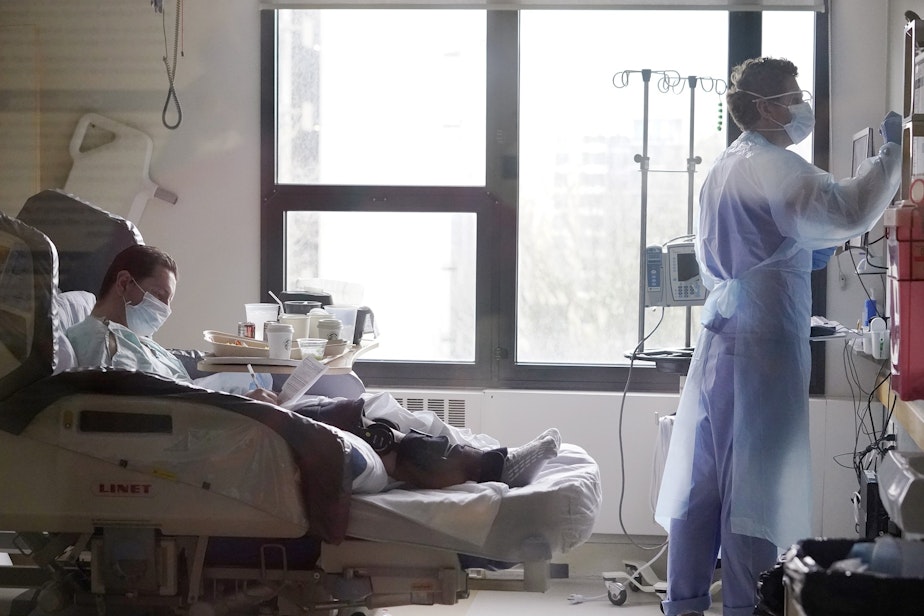Washington hospitals say financial situation remains dire as viruses surge

Hospitals across Washington state continued to see financial losses in the third quarter of this year. That’s according to survey results from the Washington State Hospital Association released Tuesday.
While the third quarter losses were smaller than those seen early in the year, they were still large, officials said.
Over the first nine months of 2022, hospitals around the state collectively lost about $1.6 billion.
“Simply put, revenues are not keeping up with rapidly escalating costs,” said hospital association CEO Cassie Sauer during a media briefing Tuesday. “This is really concerning.”
Total operating revenues for hospitals across the state topped $23 billion in the first nine months of the year. While expenses were over $24.6 billion.
Sauer and other hospital leaders have warned that continued financial losses will result in reductions or cuts to services at some hospitals, and possibly even hospital closures in the future.
Sponsored
On Tuesday, Sauer said some cuts and reductions are starting to happen.
“Losing hospital services is something every Washingtonian should be concerned about,” she said.
Hospital officials attribute the massive losses to a range of things. Those causes include increased costs of supplies and drugs, high costs of contracts for temporary staff, low Medicaid reimbursement rates, and the continued issues of discharging patients who no longer need hospital care to places like nursing homes.
The hospital association will be asking the Legislature to help address some of these issues during the upcoming legislative session.
Brian Gibbons, CEO of Astria Health in the Yakima Valley, said Tuesday that travel staffing contracts have been reduced at Astria hospitals in order to try to cut costs, and that means that there are fewer intensive care unit (ICU) beds now operating at the group’s Sunnyside hospital.
Sponsored
Additionally, a cardiology program at the hospital has been cut. This means heart attack patients will need to be stabilized in the emergency room and then moved to another hospital, Gibbons said.
The news comes at a time when hospitals are extremely full and the state is facing the triple threat of Covid-19, flu and respiratory syncytial virus (RSV).
Public health officials say RSV cases seem to have peaked, but flu and Covid-19 numbers continue to rise.
They’re urging the public to take precautions to help decrease the spread of the viruses, and safeguard the already fragile health-care system.
Masking in public indoor spaces, staying up to date with vaccines, washing hands, maximizing indoor ventilation, and staying home while sick can all help to decrease spread.




